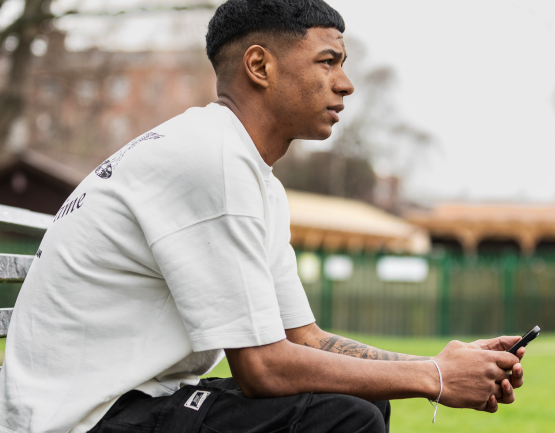Anxiety and your child
Anxiety and your child
Michelle O'Connor
How to help your teenager manage anxiety and stress. Help them build resilience and strength.

There’s a lot of different terms for ‘anxiety’, older adults might call it stress, and stress itself is not a bad thing, but long-term stress can lead to anxiety. Worry is another term, and it’s common for people who are anxious to be worried. A young person might call themselves ‘overwhelmed’, and this can often mean they’re anxious.
Stress, anxiety and overwhelm can often occur at the same time, and while many people in their 30s and older might be talking about ‘burn out’, younger people don’t call it this. This article won’t discuss burn out, as this is often referring to autistic burn out, which you can read about here.
It’s expected that people will feel anxious sometimes
Anxiety is a body-based feeling; it can be helpful in dangerous or emergency situations. It triggers a fight, flight or freeze response. Everyone can feel anxious or nervous about something big, like an exam or event. Adolescence is a period of constant change, with your child going through hormonal and developmental changes constantly. These in themselves can make your child feel worried or anxious, especially if they’re in an exam year.
Anxiety doesn’t mean your child needs clinical or professional help, but it’s important to keep an eye on the length and intensity of anxiety your child is feeling. If your child is feeling a constant low level of anxiety, which doesn’t seem to improve, they probably can’t solve it themselves. If they experience high but infrequent anxiety, something in their life is stressful.
School, and everything associated with it, can be a source of anxiety for young people. If you realise there’s something causing anxiety and you think they need your help, speak to them about it but don’t tell them you’re worried. School-related prolonged anxiety needs to be faced because it could result in emotionally-based school refusal.
How to talk to your child about anxiety
As with any conversation you need to have with your child that’s important, make sure you do it when you’re both feeling calm. Before you chat to them, take a few minutes to manage your emotions and expectations. If you start the conversation feeling anxious or annoyed, they will rise to it. If you tell them you’re worried, it could cause them to worry.
Try to ask them exactly how they’re feeling; do they have a sore tummy or feel sick? Are they sleeping? Ask them how often they feel this way, as this will give you an idea of how prolific their anxiety is. Make sure you’re not going to be interrupted during the chat – sometimes going for a drive or a walk can make space for opening up.
Allow them to open up about their worries, and don’t undermine them by telling them it’s not that bad. Anxiety is fear-based and can be intense, but reassure your child that their anxiety can be controlled.
Allow them to open up about their worries, and don’t undermine them by telling them it’s not that bad. Anxiety is fear-based and can be intense, but reassure your child that their anxiety can be controlled.
Help them to face their anxiety
Anxiety, by its nature, finds new things to be anxious about if it’s allowed. For example, if your child is anxious about speaking out loud in class, and you allow them to avoid it, the anxiety can grow and become about speaking out loud, at all. While your child might find it easier to avoid the thing that makes them anxious, this is a bad idea in the long term.
To help your child overcome their anxiety, it’s important that you gently coax them to face their fear head-on. Of course, this is incredibly difficult and even scary for your child, and they might fight you about it. Before you push them, you need to make sure any other parents or guardians are on the same page. Your child will need all the support and pushing they can get.
Conquering anxiety might seem like a massive battle, but it can be done. Think about things that might have caused you anxiety in the past, and how you overcame them. Many anxieties young people have about school or social situations are often things they will face again and again as they go through life. It’s better to tackle anxiety earlier, so it doesn’t grow legs.

Get support
We can support you in a number of ways:


